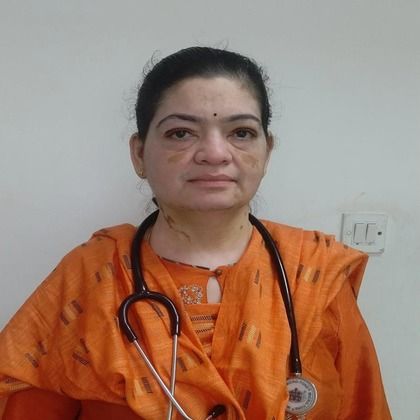Anti-inflammatory Drugs and NSAIDs Overview
Learn about anti-inflammatory drugs and NSAIDs, how they work, their common uses, potential side effects, and important considerations for safe and effective pain and inflammation relief.


If you’ve ever had a headache, joint pain, or swelling, chances are you’ve taken an anti-inflammatory medication like ibuprofen or aspirin. These drugs, known as Non-Steroidal Anti-Inflammatory Drugs (NSAIDs), are commonly used to relieve pain, reduce inflammation, and lower fever. But how do they work, and when should you use them? Let’s break it down in simple terms.
What Are Anti-inflammatory Drugs and NSAIDs?
Anti-inflammatory drugs help reduce inflammation (swelling, redness, and pain) in the body. NSAIDs are a specific type of anti-inflammatory medication that also helps with pain and fever. Some common NSAIDs include:
- Ibuprofen (Advil, Motrin)
- Naproxen (Aleve)
- Aspirin (Bayer, Disprin)
- Diclofenac (Voltaren)
There’s also another type called steroidal anti-inflammatory drugs (like prednisone), which are stronger and usually prescribed for severe conditions.
How Do NSAIDs Work?
When you get injured or have an illness, your body produces chemicals called prostaglandins, which cause pain,
swelling, and fever. NSAIDs block an enzyme called COX (cyclooxygenase), which reduces prostaglandin production.
This helps:
- Relieve pain (headaches, muscle aches, menstrual cramps)
- Reduce swelling (arthritis, sprains)
- Lower fever (during infections)
Common Uses of NSAIDs
NSAIDs are often used for:
- Muscle and joint pain (arthritis, back pain, sports injuries)
- Headaches and migraines
- Menstrual cramps
- Fever
- Minor injuries (sprains, strains)
Consult Top Specialists
Potential Side Effects of NSAIDs
While NSAIDs are helpful, they can sometimes cause side effects, especially if taken for a long time or in high doses. Possible risks include:
- Stomach problems: Heartburn, ulcers, or stomach bleeding
- Kidney issues: Reduced kidney function in some cases
- High blood pressure: May worsen hypertension
- Heart risks: Long-term use may increase heart attack/stroke risk
Who Should Be Cautious with NSAIDs?
- People with stomach ulcers or bleeding disorders
- Those with kidney or heart disease
- Elderly patients (higher risk of side effects)
- Pregnant women (especially in the third trimester)
Always check with your doctor before taking NSAIDs if you have any chronic health conditions.
Tips for Safe Use of NSAIDs
To minimise risks, follow these guidelines:
- Take the lowest effective dose: Don’t exceed the recommended amount.
- Avoid long-term use: Unless prescribed by a doctor.
- Take with food or milk: Reduces stomach irritation.
- Stay hydrated: Helps protect kidneys.
- Don’t mix with alcohol: Increases stomach bleeding risk.
Natural Ways to Reduce Inflammation
If you want to reduce reliance on NSAIDs, try these natural anti-inflammatory approaches:
- Eat anti-inflammatory foods: Turmeric, ginger, fatty fish (salmon), leafy greens, berries.
- Stay hydrated: Helps flush out toxins.
- Exercise regularly: Reduces chronic inflammation.
- Get enough sleep: Poor sleep increases inflammation.
- Manage stress: Yoga, meditation, deep breathing help.
When to See a Doctor?
Consult a healthcare provider if:
- Pain or swelling doesn’t improve after a few days.
- You experience severe stomach pain, black stools (sign of bleeding), or unusual swelling.
- You have high blood pressure, heart disease, or kidney problems.
Need Expert Advice?
If you’re unsure about using NSAIDs or need personalised guidance, you can consult a doctor online or book a lab test through Apollo 24|7 for a safe and convenient healthcare experience.
Conclusion
NSAIDs are helpful for short-term pain and inflammation, but they should be used wisely. Always follow dosage instructions, be aware of side effects, and consider natural alternatives when possible. If in doubt, your doctor can help you choose the safest option for your health.
Consult Top Specialists
Consult Top Specialists

Dr. Aakash Garg
Gastroenterology/gi Medicine Specialist
12 Years • MBBS, DNB (Medicine), DrNB (Gastroentrology).
Bilaspur
Apollo Hospitals Seepat Road, Bilaspur
(150+ Patients)

Dr. Chaithra H
General Physician/ Internal Medicine Specialist
6 Years • MBBS, MD General Medicine, DNB General Medicine
Bangalore
Apollo 24|7 Clinic - Karnataka, Bangalore

E Pradheep
General Physician/ Internal Medicine Specialist
38 Years • MBBS
Bengaluru
Apollo Clinic, Sarjapur Road, Bengaluru

Dr. Swaroopa Rani
General Physician/ Internal Medicine Specialist
9 Years • MBBS, MD (Internal Medicine)
Bengaluru
Apollo Medical Center, Marathahalli, Bengaluru

Dr. Vijayalakshmi S
General Physician/ Internal Medicine Specialist
17 Years • MBBS, MDRC, PGDHS
Bengaluru
Apollo Medical Center, Marathahalli, Bengaluru
Consult Top Specialists

Dr. Aakash Garg
Gastroenterology/gi Medicine Specialist
12 Years • MBBS, DNB (Medicine), DrNB (Gastroentrology).
Bilaspur
Apollo Hospitals Seepat Road, Bilaspur
(150+ Patients)

Dr. Chaithra H
General Physician/ Internal Medicine Specialist
6 Years • MBBS, MD General Medicine, DNB General Medicine
Bangalore
Apollo 24|7 Clinic - Karnataka, Bangalore

E Pradheep
General Physician/ Internal Medicine Specialist
38 Years • MBBS
Bengaluru
Apollo Clinic, Sarjapur Road, Bengaluru

Dr. Swaroopa Rani
General Physician/ Internal Medicine Specialist
9 Years • MBBS, MD (Internal Medicine)
Bengaluru
Apollo Medical Center, Marathahalli, Bengaluru

Dr. Vijayalakshmi S
General Physician/ Internal Medicine Specialist
17 Years • MBBS, MDRC, PGDHS
Bengaluru
Apollo Medical Center, Marathahalli, Bengaluru




